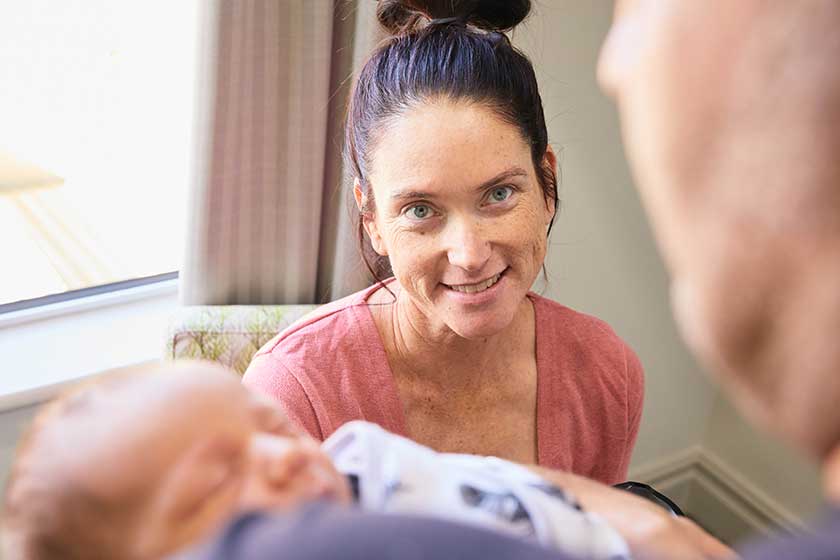COVID-19 is changing many aspects of our daily lives and reducing support networks that we rely on to maintain good emotional wellbeing.
This is particularly evident for pregnant women and new mums who are welcoming babies into the world with limited physical support from family and friends.
We know that up to one in seven women and one in 10 men will experience perinatal anxiety and depression but increased stress around health and economic pressures may see this rise.
Many great minds and resources are focused on finding a vaccine for COVID-19, but we know that no one is immune from mental health issues. Women of any age, income, and background can experience perinatal anxiety and depression.
The good news is treatment options are available and research shows they are effective to help women recover.
This is really important to remember, because mental health is just as important as physical wellbeing.
So while we make drastic changes to keep physically well, we can’t ignore the effect these changes are having on women’s wellbeing.
Women who are considering becoming pregnant might be putting on hold their plans. This can cause great grief, particularly in older women or those who may need fertility treatments.
Pregnant women may have additional worries and fears about what COVID-19 means for their pregnancy, while their scheduled face-to-face antenatal appointments may have switched to online, and even routine blood tests might be done differently.
During birth and in hospital, women can have one visitor with them and when they go home, visitors continue to be restricted including visits from grandparents who often provide the hands on support needed in those early days and months of parenting, this includes support to enable mums to return to work.
Both pregnant women and new mums with existing mental health conditions – where the focus is often on safety and physical wellbeing for self and family- are likely to experience greater fear in relation to themselves or loved ones developing a COVID-19 related infection.
These more susceptible women will also likely be particularly affected by the stress of enforced isolation and frequent financial strain experienced by many young families in the present economic climate.
Partners who are trying to maintain adequate income or have lost their employment, may also be under great emotional duress. Additionally, in the Eastern States, the pandemic comes on the back of the devastating bushfires in which many rural and regional families lost their livelihood and their homes. For these women the situation may be catastrophic and they risk developing PTSD further down the track.
It is therefore essential that now more than ever,we keep in mind that a woman’s mental health will be tested and strained.
That is why we are encouraging frontline health care professionals, friends and relatives of new mums to ask her how she’s really feeling and encourage her to seek help.
Support is available
If you are concerned about your emotional wellbeing or that of your loved one, speak to your GP who can provide advice and referral for treatment if needed.
This may include:
Mother and Baby Unit at St John of God Burwood Hospital, Sydney the only inpatient perinatal mental health unit in NSW
St John of God Raphael Services – provides free counselling (in person, via the phone or video conferencing) for mums and dads with a referral and Mental Health Treatment Plan from a GP in WA, Victoria and NSW (MHTP not required in NSW)
Perinatal Anxiety and Depression Australia (PANDA): Free helpline – telephone: 1300 726 306
Tips for new mums
If you are pregnant or have just welcomed a new baby into the world, here are some helpful tips to help you maintain your emotional wellbeing.
- Limit how often you watch the news, and keep evenings free for unwinding and preparing for sleep.
- Ask a doctor or midwife about online antenatal classes, which are great places to meet and talk to other pregnant women.
- Try meditating, deep breathing, or gentle stretching.
- Take care of your relationships by connecting with friends and family over the phone or through video conferences.
- Get enough sleep by going to bed at a consistent time and limiting screen time beforehand.
- Eat a healthy diet and exercise regularly.
- Take time for yourself, which can be very hard for pregnant women and busy mums but if you can, try to lie down for 20 minutes.
- Make use of online support groups and forums for pregnant women and new parents.
- Accept offers of help from friends and family. For example grocery shopping.


